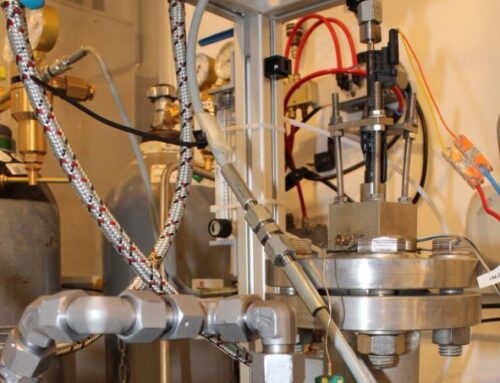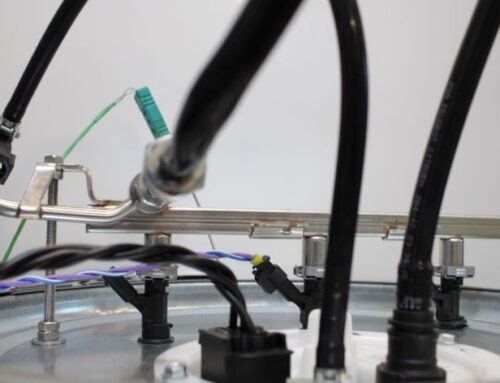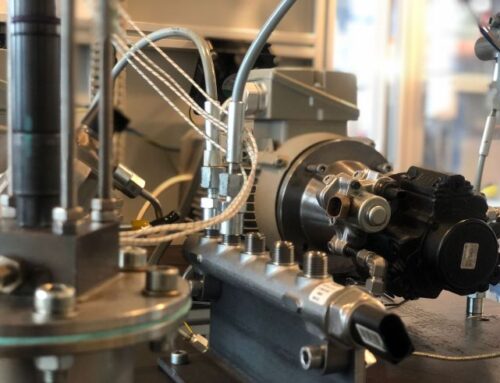Production and use are technically possible
13 December 2022 – The production and use of a new climate-friendly diesel fuel from biogenic residual and waste materials are technically feasible and have been successfully demonstrated in the EU research project REDIFUEL. For demonstration purposes, the research partners developed a production plant in which residual wood and tree bark (lignocellulose) were converted into a synthesis gas in a Fischer-Tropsch process and processed into liquid feedstocks and waxes. In a subsequent process, hydroformylation, the aldehydes contained in the raw material were converted into alcohol, so that REDIFUEL consisted of 30% alcohol and 70% paraffinic components. This fuel reduced CO2 emissions (up to 56%) compared to mineral oil-based diesel and had a slightly higher combustion efficiency (about 3%). The fuel consumption of a vehicle running on REDIFUEL was comparable to diesel operation. Overall emission performance was similar to conventional diesel, with soot emissions even decreasing by 10 to 15 %.
In the project, OWI Science for Fuels gGmbH and TEC4FUELS GmbH investigated the chemical-physical properties of REDIFUEL, its mixing behavior with other fuels, aging behavior, storage stability and compatibility with the materials and components of diesel fuel systems. OWI’s fuel analysis showed that pure REDIFUEL falls below the lower density and higher water content values specified in the EN 590 diesel fuel standard. However, compliance with the lower density limit was possible in fuel blends containing at least 50% conventional diesel and REDIFUEL. Therefore, these blends are largely compliant with the standard. The higher water content had no effect on engine operation in the project.
REDIFUEL is compatible with diesel engines
OWI’s review of the storage stability and aging behavior of different blends of REDIFUEL revealed that oxidation stability should be improved with commercially available additives (antioxidants) to achieve the stability of mineral oil-based diesel fuels. In addition, OWI and FEV investigated engine wear in test runs. The signs of wear detectable in the engine oil showed no significant differences between engine operation with different REDIFUEL blends and conventional diesel fuel. REDIFUEL was also comparable to conventional diesel in terms of fuel-lubricant interaction.
TEC4FUELS investigated the compatibility of the new fuel with the components of a commercially available common rail system for diesel engines. For the study, the system components were set up in a hardware-in-the-loop test rig and the REDIFUEL was cycled through the components without burning it. A modified test design reduced the run time of the test rig from 500 to 100 hours and the amount of fuel required from 60 to 30 liters. Some REDIFUEL blends have shown deposit formation inside the injectors, but these could be dissolved or avoided by adding deposit control additives.
The conclusion: REDIFUEL in various blends is an alternative fuel that has similar qualities to conventional diesel fuel in terms of storage stability, fuel-lubricant interaction, engine wear and fuel-material compatibility. Therefore, REDIFUEL is suitable as a drop-in fuel for existing and new vehicles.
The EU research project “REDIFUEL” was funded by the European Union within the framework of the Horizon 2020 research and innovation program under the grant number 817612.








